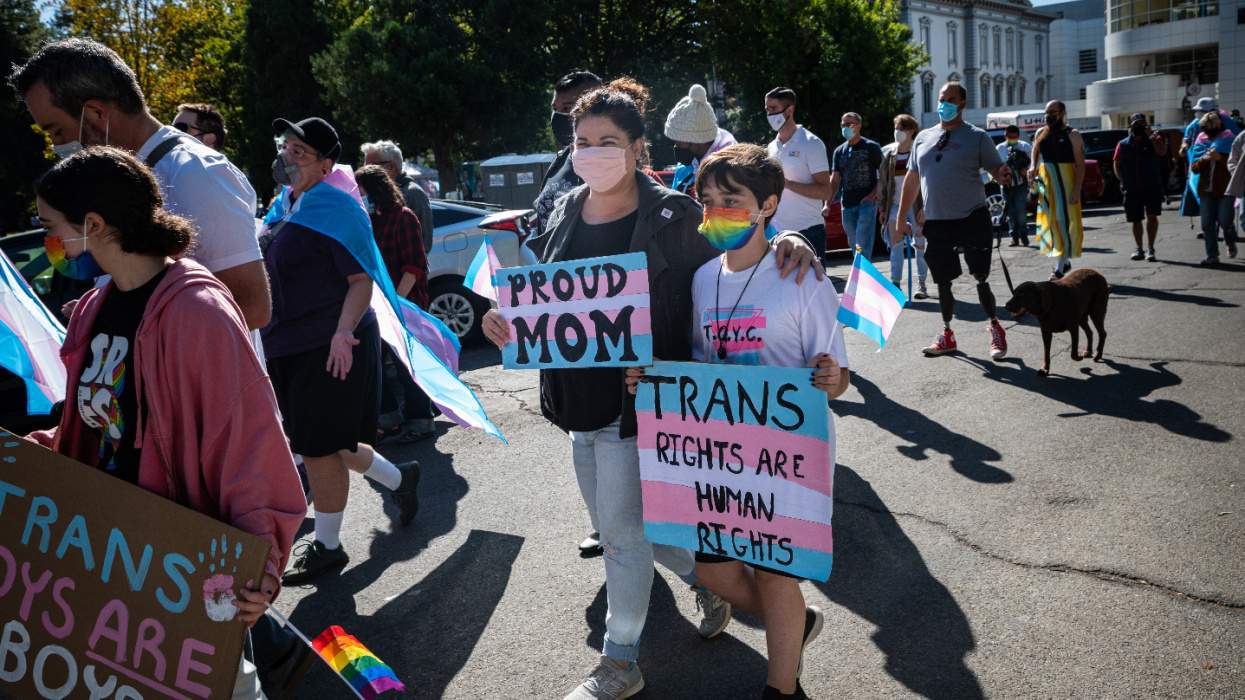The federal Department of Labor's Occupational Safety and Health Administration (OSHA), at the urging of the National Center for Transgender Equality, issued new guidance Monday telling U.S. employers that transgender employees should be allowed to use the work bathrooms that accord with their gender identities.
OSHA, a department perhaps best known for monitoring workplace safety standards -- from hardhats for construction workers to maximum work hours allowed for youth laborers -- made it clear in "Guide to Restroom Access for Transgender Workers" that allowing trans workers to pee in peace is very much a part of a worksite's health and safety.
Though the four-page document's guidelines are not legally binding, they are a resource for employers who sincerely wonder how to accomodate transgender employees, and represent yet another statement of support from the Obama administration for trans workers. In December, then-Attorney General Eric Holder announced that the federal government would now consider antitrans workplace discrimination to be a violation of Title VII of the Civil Rights Act of 1964. Four months later, the Department of Justice made a historic move in suing Southeastern Oklahoma State University on behalf of a transgender employee who alleged workplace discrimination.
OSHA's new guidelines draw attention to specific work situations that often get overlooked in a broader conversation about trans discrimination, pointing out two realistic workplace scenarios that can be easily avoided if employers make their stance on restroom access clear: the fact that trans employees can feel "segregated" if told to only use single-stall or gender-neutral restrooms, and that many trans employees will hold their bodily functions in order to avoid using restrooms entirely, creating serious health risks.
To avoid these mental and physical dangers, OSHA instructs employers to allow trans employees to self-determine the best bathroom for themselves, without being required to provide medical or legal "proof" of gender transition.
"Many companies have implemented written policies to ensure that all employees -- including transgender employees -- have prompt access to appropriate sanitary facilities," the guidelines go on to point out. "The core belief underlying these policies is that all employees should be permitted to use the facilities that correspond with their gender identity. ... Regardless of the physical layout of a worksite, all employers need to find solutions that are safe and convenient and respect transgender employees."
While more and more transgender employees who have faced alleged antitrans workplace discrimination have filed complaints with the EEOC and other federal courts, OSHA's guidance ends by suggesting an additonal route to justice: if trans employees feel they have been exposed to workplace "hazards" or unsanitary conditions when instructed to use specific bathrooms -- from physical threats to non-working toilets in neglected single-stall restrooms -- they can contact OSHA for guidance and support.















Charlie Kirk DID say stoning gay people was the 'perfect law' — and these other heinous quotes
These are some of his worst comments about LGBTQ+ people made by Charlie Kirk.